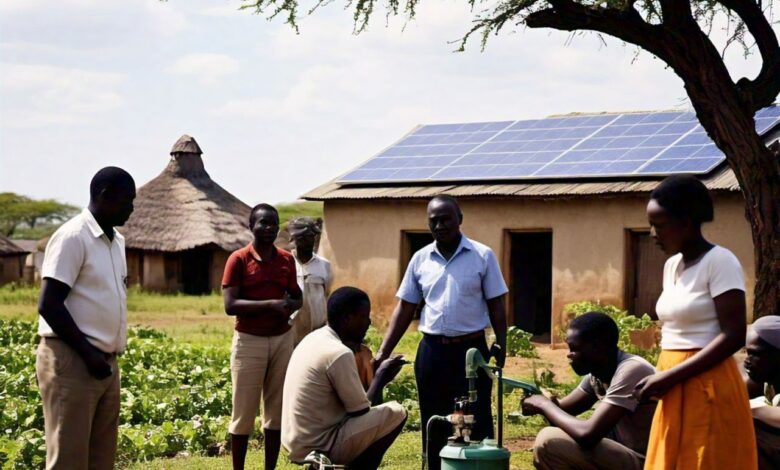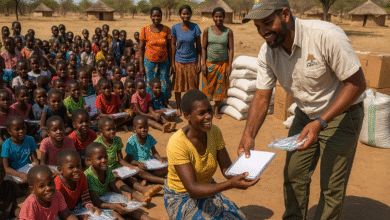Green Initiatives in Zimbabwe: Innovations for Sustainable Development

In recent years, Zimbabwe has been actively embracing environmental sustainability through various green initiatives. These efforts aim to reduce the country’s carbon footprint and promote eco-friendly practices across various sectors. Green initiatives in Zimbabwe encompass a wide range of activities designed to protect the environment and ensure a sustainable future for generations to come.
According to the Law Insider, “green initiative” refers to ” the holistic process of envi-ronmental stewardship” This definition highlights the importance of these initiatives in addressing climate change and preserving biodiversity.
Solar Energy Revolution
Additionally, one of the most significant green initiatives in Zimbabwe is the shift towards solar energy. The country has made substantial investments in renewable energy projects, particularly in the solar sector. The move away from fossil fuels aligns with global efforts to combat climate change and reduce dependence on finite resources.
The Zimbabwe Energy Regulatory Authority (ZERA) has implemented policies encouraging the adoption of solar power. This regulatory support has led to an increase in the installation of solar panels on homes and businesses across the country.
Nationwide Forestry Programmes
Furthermore, another notable green initiative in Zimbabwe is the nationwide tree planting initiative. This initiative aims to plant and maintain trees throughout the nation improving air quality and providing shade for residents.
The Forestry Commission Zimbabwe is championing several tree planting campaigns. Furthermore, they are focusing on afforestation throughout the nation. These efforts not only contribute to environmental conservation but also enhance the aesthetic appeal of the nation.
Eco-Friendly Agriculture Practices
Moreover, Zimbabwean farmers are increasingly adopting eco-friendly agricultural practices, showcasing the potential for green initiatives in agriculture. Organic farming methods are gaining popularity, reducing the use of chemical pesticides and fertilisers.
Small scale farmers and some large-scale farmers, with a number in horticulture are venturing into organic farming by using fertilisers from animal and plant waste obtained sustainably. Furthermore, some farmers use compost, bat guano and cow dung as fertilisers in organic farming. Additionally, such initiatives demonstrate commitment to sustainable agriculture and food security.
Waste Management Innovations
Also, improving waste management is another crucial aspect of green initiatives in Zimbabwe. The government through EMA has regulations aimed at reducing litter and promoting recycling.
Private companies have also entered the scene, developing innovative solutions for waste reduction. For instance, some entrepreneurs have started composting services, converting household waste into nutrient-rich fertiliser.
Renewable Energy Projects
While solar energy is prominent, Zimbabwe is also exploring other forms of renewable energy. Wind power projects can be developed in rural areas, providing electricity to communities previously off-grid.
The government can establish partnerships with international and local organisations to fund these renewable energy projects, demonstrating the collaborative approach to green initiatives in Zimbabwe.
Environmental Education Programs
Additionally, to ensure long-term success of green initiatives, Zimbabwe is investing heavily in environmental education. Schools across the country are incorporating eco-conscious lessons into their curricula.
These programs aim to raise awareness about the importance of protecting the environment among younger generations. Therefore, educating children about green practices, Zimbabwe hopes to foster a culture of sustainability for the future.
Challenges and Opportunities
Despite the progress made in green initiatives, Zimbabwe still faces challenges in implementing and scaling up these programs. Limited funding and infrastructure constraints remain major obstacles.
However, these challenges also present opportunities for innovation. Local entrepreneurs can develop creative solutions to overcome these hurdles, such as using recycled materials in construction projects among other uses.
Conclusion
Finally, green initiatives in Zimbabwe are playing a vital role in shaping the country’s environmental future. From solar energy installations to urban forestry programmes, these efforts showcase Zimbabwe’s commitment to sustainability.
As the world continues to grapple with climate change, Zimbabwe’s green initiatives serve as a model for other nations. The country’s journey towards a greener tomorrow demonstrates that even in challenging economic conditions, environmental protection remains a priority.
By continuing to innovate and adapt these initiatives, Zimbabwe stands poised to become a leader in sustainable development in Africa. As the saying goes, “the best time to plant a tree was yesterday; the second-best time is today,” and Zimbabwe is certainly taking action to secure a greener tomorrow for all its citizens.




